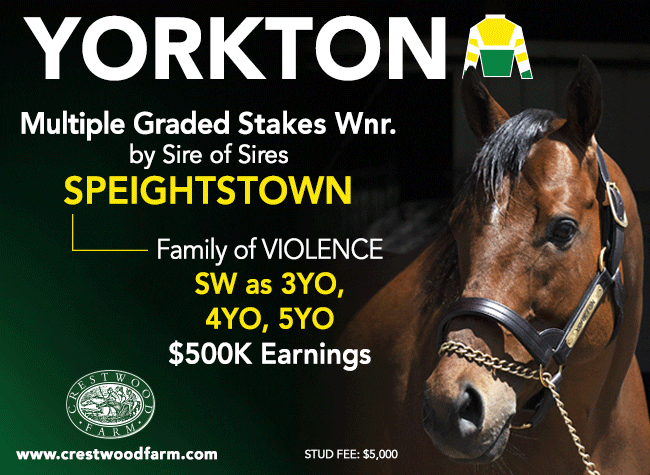By Ben Massam
In a move that could have a significant impact on the racing industry and its position in the gambling market as a whole, the American Sports Betting Coalition (ASBC) was launched Monday in an effort to repeal the 25-year-old Professional and Amateur Sports Protection Act (PASPA), which prohibits sports betting outside of Nevada. Spearheaded by the American Gaming Association (AGA), which announced the launch of the coalition's website Monday, the group consists of law enforcement personnel, state and local policymakers and gaming industry members. While the legalization of sports betting could have a positive impact for racetracks as an alternative revenue stream, NTRA President and CEO Alex Waldrop noted that the industry must take a close look at the issue from a variety of angles.
“We're aware of it, and we have met with the American Gaming Association,” Waldrop said on a Monday evening phone call. “It does appear that their goal is a repeal of PASPA, which would do nothing more than put it back to a state level, where they would decide, much like casino gambling. We have begun conversations with our members about their position on the repeal, which is not the same as legalization of sports betting. It simply opens the door for states to make their own independent determination. Nor does it preclude any group of racetracks from being part of any authorizing legislation at the state level.”
An ASBC mission statement, which stresses the importance of deferring to individual state governments, reads: “Federal law prohibiting sports betting has failed. Out of step with American attitudes, it has created a massive illegal gambling market without any rules or protections. It's time to end the federal ban on sports betting.”
Among the notable members of the coalition are Brad Schimel, attorney general of the state of Wisconsin; Mick Cornett, mayor of Oklahoma City; and Ed Davis, a former Boston police commissioner. With a heavy emphasis on the empowerment of law enforcement, the ASBC cites the need to curb illegal sports wagering as a driving force behind the push for legalized and regulated sports betting with greater transparency for customers.
With Monmouth Park and the state of New Jersey poised to move forward with an attempt to nullify PASPA at a Supreme Court level, a repeal of the ban that returns the decision to the states would undoubtedly be a welcome sign for the track as it searches for an alternative stream of revenue. Nevertheless, there are concerns that the advent of new sports betting facilities could have a negative effect on racetracks competing for the public's wagers.
“This is exactly what Monmouth needs, so from that perspective, there are certainly going to be people in the industry who are very supportive of it,” Waldrop continued. “I think there are going to be others who sit back and say, 'How will this effect us? Do we need to negotiate something in return?' So we're taking a look at it from a variety of perspectives. We haven't taken a position as the NTRA. We're going to be taking up the issue with our board at the next board meeting. I don't think this is imminent by any stretch.”
Waldrop added that the NTRA would likely reach a stance on the issue at some point in the next six months after their discussion period with members. While the formation of the ASBC represents the largest initiative yet to repeal PASPA, the coalition must still find a way to overcome significant opposition in Congress, as well as the prospect of continued resistance from the sports leagues–primarily the NFL. Waldrop said he believes that the issue is coming to a head with the rise of daily fantasy sports, which is widely supported by sports leagues.
“The view of some is that there's a level of hypocrisy on the part of the sports leagues, who want to oppose sports gambling, but they somehow are going to tolerate daily fantasy,” Waldrop observed. “It seems inconsistent.”
Although it appears that the ultimate goal of the ASBC is to enable brick and mortar sports betting operations at existing casinos and racetracks, the NTRA's stance on the matter could take a drastically different turn should the possibility of online sports betting enter the discussion. With horse racing essentially having a monopoly on the market of legal, online pari-mutuel wagering in the form of ADWs, the introduction of off-site sports betting would likely conflict with the interests of the racing industry, according to Waldrop.
“If this was an online play, we as an industry, because of our online wagering platforms–ADWs–would have to approach this very differently,” Waldrop concluded. “We would have to be much more reluctant and make greater demands.”
According to the AGA, the ASBC initiative will attempt to educate “policymakers, law enforcement and all relevant stakeholders” about the impact of illegal sports betting in an effort to bolster support for legalized wagering. The AGA represents the U.S. casino industry, with its members including Penn National Gaming Inc., Boyd Gaming Corporation and Greenwood Racing Inc.–all of which operate racinos.
Not a subscriber? Click here to sign up for the daily PDF or alerts.






